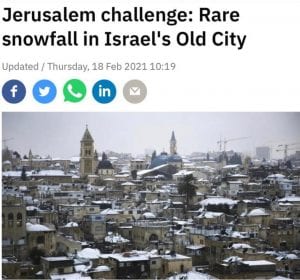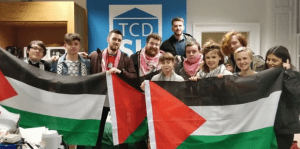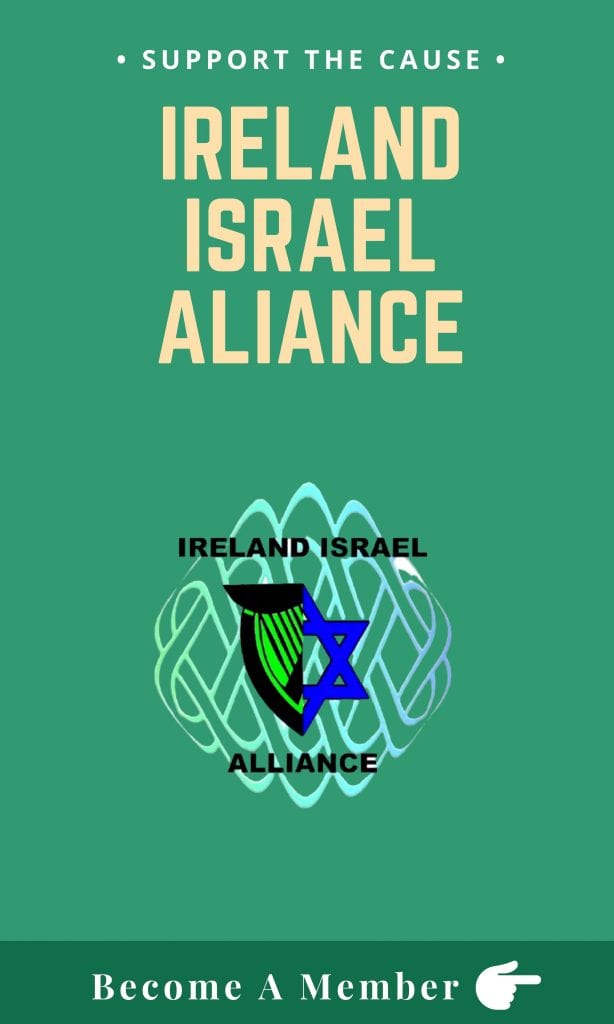The Irish Government’s Joint Committee on Enterprise, Trade and Employment meets every Wednesday to discuss a range of business-related topics. On Wednesday July 14, the subject of the meeting was “Trade between Ireland and the Palestinian Territories”. The naïve might have hoped for a Committee that would outline aid and incentives to encourage Irish and Palestinian investment to create opportunity and employment in the Palestinian Territories. Young Palestinians are amongst the best-educated and least-employed in the Middle East. Perhaps there would be a programme of grants, low-interest loans and business advisory services to promote Palestinian-owned and run SMEs (small and medium sized enterprises), giving Palestinians a path out of poverty and reliance on international aid – or perhaps not.
After an introduction by Bertie Ó hAinmhire, Chair and Board member of Sadaka, the meeting was addressed by Martin Konečný, Director European Middle East Project and Hugh Lovatt, Senior Policy Fellow at the European Council on Foreign Relations.
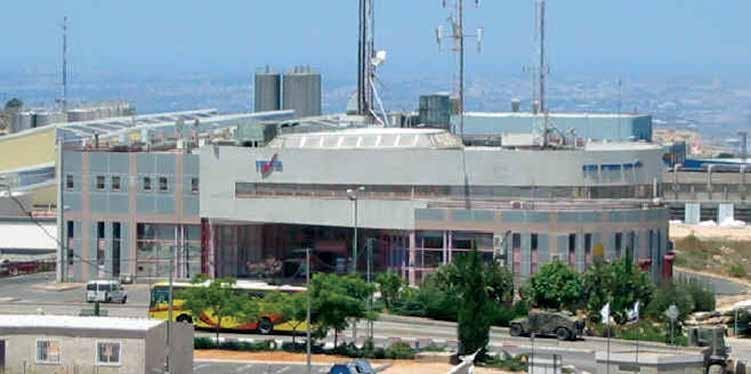
Instead of focussing on how Ireland can help Palestinians develop a stable, working economy – surely a key part of any hopes for future statehood – the meeting was entirely devoted to promoting what can only be described as lawfare against Israel and Israeli businesses in the West Bank/Judea and Samaria. Several members of the Committee made the familiar and inaccurate comparison of the situation in Israel and the Territories with the apartheid regime in South Africa.
Their emphasis seems to be three-pronged:
- At EU level Ireland should promote the “differentiation policy” to identify any elements of trade with settlement businesses, including trying to identify Irish businesses involved in trade in components, where settlement products might not be readily identifiable in the finished product.
- At UN level Ireland should promote the UN database of businesses involved in “settlement activities”, including campaigning at UN level for a budget to keep the database updated, and actions to make the identification of Irish businesses on the list readily known to the (sympathetic) Irish public
- At domestic level, Ireland should enact the Control of Economic Activity (Occupied Territories) Bill 2018, despite legal argument that it is outside Irish competency, and even if it means facing a court challenge, because the resulting publicity is expected to encourage other European states to consider similar legislation, ultimately leading to EU acceptance.

In 2019, the Ireland Israel Alliance (IIA) made a written submission to the Oireachtas Select Committee on Foreign Affairs and Trade and Defence regarding the Control of Economic Activity (Occupied Territories) Bill 2018. IIA pointed out that if the approach in this Bill were followed by other countries, it would have serious consequences for Palestinian families, the Palestinian economy, and the creation of a viable Palestinian state, and was likely to reduce the prospects for Middle Eastern peace.
In 2018, the Jerusalem Centre for Public Affairs (JCPA) published a detailed report on “DEFEATING DENORMALIZATION: Shared Palestinian and Israeli Perspectives on a New Path to Peace”. The report enabled Palestinian voices who say that “the innumerable employment opportunities provided by the Israeli system have fostered a de facto upgraded standard of living” and that by “labelling Israeli products and boycotting Israel, they are hurting Palestinian workers and not the Israeli government or military.”
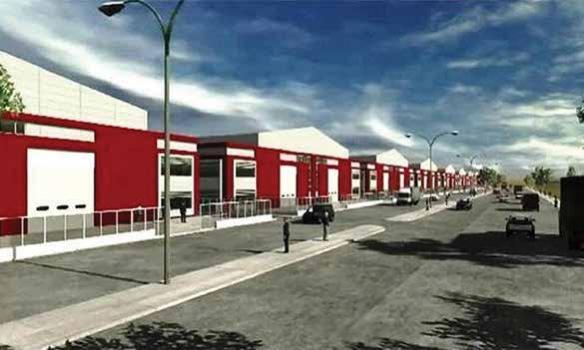
Unfortunately, many Irish politicians have taken on board the Palestinian Authority’s policy of denormalization, which Palestinian journalist Khaled Abu Toameh describes in the JCPA report as follows:
Denormalization’s first objective is to intimidate and threaten Palestinians and Israelis who seek peace and a “two states for two peoples” solution. Denormalization’s second objective is to delegitimize and isolate Israel in the international community. In this regard, denormalization parallels Hamas and other terror groups that are working to destroy any chance of peace between Israel and the Palestinians.
A radical shift in thinking, away from denormalisation, is required if Ireland really wants to be instrumental in bringing peace to the Israel-Palestine situation. Parliamentarians and Non-Governmental Agencies must look for win-win scenarios that benefit the entire region instead of treating the Israel-Palestine situation as a zero-sum game.
By Teresa Trainor


